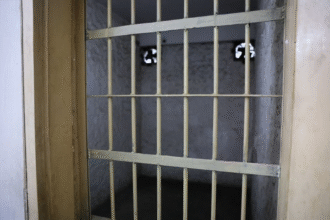Long regarded as one of the most fearsome militaries in Southeast Asia, Myanmar’s once-strong army is disintegrating from the inside. New disclosures reveal that it is becoming rife with spies covertly supporting pro-democracy revolutionaries, therefore altering the balance of power in the nation’s continuing civil war. Since the military takeover in February 2021, investigations have revealed that the military now rules fewer than 25% of Myanmar’s land, a marked drop in military dominance.
- The "Watermelons" are who, and what role do they serve?
- Why Would Soldiers Want to be Resistance Spies?
- The balance of power in Myanmar has changed?
- How might Watermelon Intelligence affect the War Effort?
- Why Would Soldiers Risk Their Lives to Support the Resistance?
- How have targeted attacks resulted from Watermelon Intelligence?
- What Risk Do Watermelon Spies Run?
- For Watermelon Spies, what lies ahead?
- How Are Watermelon Spies Honed for Their Work?
The "Watermelons" are who, and what role do they serve?
Known as “Watermelons,” the spies opposing the military play a unique role in the continuous battle. From the outside, they seem to be devoted troops; from the inside, they subtly support the pro-democracy revolutionaries with a red symbolic colour. These agents, who are green on the outside and red inside, are essential in providing key military information to the opposition.
A major from central Myanmar says he switched sides because he was driven to defect by military cruelty. I came upon the bodies of tormented citizens. I started to cry, Kyaw [not his actual name] stated. “How could they be so nasty against our people? Although we are supposed to defend citizens, right now, we are killing people. It is a force that terrorizes rather than an army now.
According to the United Nations, the military’s aggressive policies have resulted in thousands of deaths and more than 20,000 arrests since the coup. The bloodshed set off an insurrection that undermined military rule over the nation.
Why Would Soldiers Want to be Resistance Spies?
Once a committed soldier, Kyaw first thought of leaving the army. After talking with his wife, though, he realized that serving the revolution would best come from becoming a spy. Kyaw started passing military intelligence to the People’s Defense Forces (PDF), a network of civilian militia organizations aiming at overthrowing the junta. His revelations have enabled the rebels to dodge raids, arrange ambushes on the military, and get weaponry.
“The military is dangerous,” UN Special Rapporteur on Myanmar Tom Andrews says. “But thanks in part for the intelligence gathered by spies like Kyaw, the resistance has made notable progress.” These agents support the opposition in ways heretofore unthinkable by providing vital information on troop movements, military operations, and weapon caches.
The balance of power in Myanmar has changed?
Investigations as of mid-November 2024 found that just 21% of Myanmar’s territory is under military control. With much of the remaining territory under dispute, ethnic armies and civilian resistance organizations today hold 42% of the nation. Based on the Armed Conflict Location and Event Data Project (ACLED), this represents the lowest degree of military authority since first taking over in 1962.
Coordinated activities between several ethnic armies and the civilian militias have made the military defensive. Severe territorial losses have driven Min Aung Hlaing, Myanmar’s Commander-in-Chief, to acknowledge pressure on his army. The military’s leaks from within have skewed the balances in favour of the opposition, who today gain from an expanding network of informants.
How might Watermelon Intelligence affect the War Effort?
Two years ago, the opposition created a dedicated team to oversee the growing network of Watermelon spies. From low-ranking troops to top-ranking officials, these spies use social media to attract fresh operatives. Former intelligence officer Win Aung [not his actual name] defected to the resistance following the coup. Today, he oversees the team verifying and disseminating the intelligence acquired from within the military.
“We get fresh watermelons every week,” Win Aung notes. Our primary recruiting tool is social media. We have military government spies in place from the ministries through village chiefs. Despite the significant risks, the spies are thoroughly screened to guarantee they are not double agents.
Why Would Soldiers Risk Their Lives to Support the Resistance?
There are different reasons why one joins the resistance as a spy. For Kyaw, it was indignation at military cruelty. For Moe, a navy corporal, the choice was motivated by survival. Thinking the military was losing the battle and he would not survive if he stayed, Moe’s pregnant wife pushed him to join the resistance. Moe started informing the Watermelon unit of weapon and troop movements.
Pro-democracy rebel commander Daeva stresses the need for this intelligence: “Our unit’s main objective is to seize Yangon, the biggest city in Myanmar. Still, the work is not simple. Several metropolitan areas with vital resources and infrastructure are still under military control.
How have targeted attacks resulted from Watermelon Intelligence?
Unable to reach Yangon directly, Daeva, working from his jungle stronghold, uses intelligence from Watermelon spies to plan deliberate strikes by underground cells in the city. In one such instance, he aimed an attack on a colonel, guiding an assassination.
“We will do it inside the enemy’s security parameters,” Daeva declared. “Be careful; the enemy is losing in every direction and is more likely to be alert for infiltrators.”
Intelligence supplied by rank-based spies has been the impetus for some significant military strikes. Daeva muses over the movement’s achievements, noting, “We started with nothing, and now look at our success.”
What Risk Do Watermelon Spies Run?
Being a Watermelon spy carries enormous hazards. The military aggressively searches for and penalizes alleged informants. While serving on a ship in Rakhine, a border area, Moe barely escaped the insurgent attack. His boat came under intense fire after being struck with a projectile missile. “There was nowhere to run to. We resembled rats in a cage, he says. The onslaught claimed seven of his fellow troops dead.
Win Aung confesses that the capacity of the Watermelon squad to guard its agents is somewhat low. “Our troops cannot cease hitting military convoys or declare openly who the Watermelons are. At that moment, some spies even advised me not to hesitate but to shoot.
Some spies continue working despite these dangers. Sometimes, though, they run when the risk becomes intolerable. When Moe sought aid after fleeing a risky deployment to another front line, he was smuggled to a territory under control for resistance using the Underground Network of the Watermelon squad.
“I had to leave under darkness,” Moe recalls. “The next morning, when I missed duty, the troops came round to interrogate my wife, but she stayed quiet.”
Moe travelled a dangerous path before finally arriving at one of Daeva’s bases. In a video conference, Daeva asked him what part he would like to perform going forward and thanked him for his service. Concerned for his small family, Moe asked for a non-combat position and offered to teach other rebels his military techniques instead.
For Watermelon Spies, what lies ahead?
After a few weeks, Moe crossed into Thailand for a fresh start. His wife and kids, who planned to join him, have also left their house. Though he is secure for now, the continuous conflict nevertheless wears him out.
Concurrently, the military is stepping up its efforts to recover land lost. It keeps doing lethal airstrikes with fighter planes manufactured in China and Russia. The military is trying to exploit any rifts among the rebels as it understands that the opposition is not one cohesive entity.
“As the junta loses control,” UN Special Rapporteur Tom Andrews notes, “their brutality increases.” It’s becoming worse. The death toll, the cruelty, the torture—it is rising.
How Are Watermelon Spies Honed for Their Work?
Watermelon spies like Kyaw and Moe are driven to keep on despite the risks. Still hiding his actual military loyalties, Kyaw shows his anxiety about being found but stays firm. “I’m not sure how long I could remain undercover. “But I will keep behaving like a military spy, hoping to see a day when the revolution ends.”
Win Aung assures me that spies like Kyaw and Moe will not be forgotten when that day arrives. “We will treat them respectfully and let them pick what they want to do next.”
Two major turning points in Myanmar’s struggle for democracy are the expanding network of spies and mounting pressure on the military. Although the path to triumph is unknown, these spies’ efforts keep driving the resistance’s struggle for freedom.
Congress Withholds Hegseth Funds Until Boat Strike Video Released








